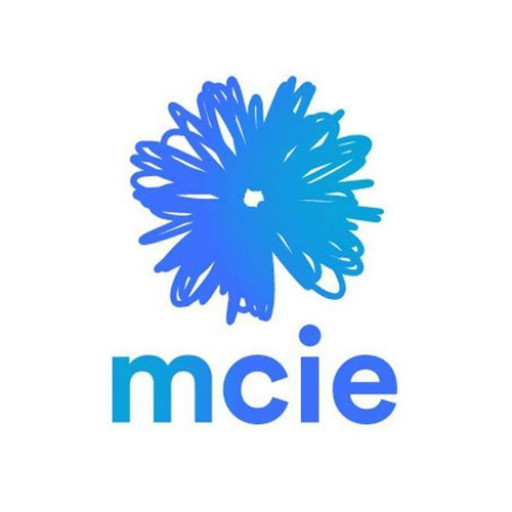Program overview: The Bachelor of Disability Studies at the Institute of Tertiary and Higher Education Australia is a comprehensive undergraduate degree designed to equip students with the knowledge, skills, and practical experience necessary to support and empower individuals with disabilities. This program aims to foster a deep understanding of disability as a social, cultural, and personal phenomenon, emphasizing the importance of inclusive practices and policy development to improve quality of life for people with disabilities. Throughout the course, students explore various aspects of disability, including legal and ethical considerations, disability rights, assistive technologies, and social models of disability. Emphasizing both theoretical frameworks and real-world applications, the program integrates coursework with practical placements to prepare graduates for diverse roles within healthcare, community services, advocacy, and policy development sectors. Students will engage with a multidisciplinary curriculum, covering topics such as inclusive education, disability support work, mental health, aging and disability, and the development of accessible environments. The program also aims to develop students' communication skills, cultural competence, and ethical awareness, enabling them to advocate effectively and work collaboratively with individuals with disabilities, their families, and stakeholders. Graduates of the Bachelor of Disability Studies will be well-prepared to contribute positively to society by promoting inclusivity, reducing barriers, and supporting independence among people with disabilities. With a strong emphasis on evidence-based practice and ethical service delivery, this degree provides a solid foundation for further studies or careers that make a meaningful difference in the lives of individuals with disabilities and their communities.
Disability Studies is a comprehensive academic program designed to explore the multifaceted aspects of disability within social, cultural, political, and legal contexts. This program aims to develop students' understanding of disability as a complex social phenomenon, moving beyond traditional medical models to adopt a more inclusive and rights-based perspective. Throughout the coursework, students will examine the historical evolution of disability policies, the social models of disability, and the impact of societal attitudes on individuals with disabilities. The curriculum emphasizes critical analysis of how institutional structures, community initiatives, and policy frameworks influence the experiences of disabled people across different regions and cultures.
Students will engage with a diverse range of topics including accessibility, disability advocacy, human rights, and the intersectionality of disability with race, gender, sexuality, and socioeconomic status. The program incorporates theoretical and empirical research methods, enabling students to critically analyze disability-related issues and develop practical solutions for promoting inclusivity. Practical components include internships and fieldwork opportunities with disability organizations, government agencies, or community groups, providing real-world experience and fostering advocacy skills.
Upon completion of the program, graduates will be equipped to work in various sectors such as social services, policy development, advocacy, education, and health care. They will be prepared to challenge discriminatory practices, implement inclusive policies, and promote social justice for people with disabilities. The program also supports further academic pursuits, including research and doctoral studies in disability and related fields. Overall, this program aims to cultivate informed, compassionate, and proactive professionals dedicated to advancing the rights and well-being of disabled individuals worldwide.
Program requirements for the Disability Studies Bachelor of Arts generally include completion of foundational courses in disability theory, policy, and advocacy, alongside practical experiential learning components. Prospective students must have completed secondary education with satisfactory academic results or an equivalent qualification. Applicants may be required to submit academic transcripts, a personal statement outlining their interest in disability issues, and proof of English language proficiency if applicable. The program emphasizes interdisciplinary learning, combining coursework in sociology, psychology, health studies, and law, necessitating the successful completion of core and elective modules totaling approximately 120 credit points over three years of full-time study. Students are expected to participate in internships or community engagement projects to develop practical skills and understanding of real-world disability challenges. Additionally, the program may include assessments such as essays, presentations, group projects, and exams to evaluate student progress. Some programs may require a background in related fields or relevant work experience, but such prerequisites vary. To graduate, students must achieve the minimum required GPA, complete all coursework, and fulfill any specific capstone or thesis project designated by the curriculum. Accessibility services and disability accommodations are available to support enrolled students throughout their studies, ensuring equitable participation in all program activities. The program prepares graduates for careers in advocacy, policy development, social services, and education sectors related to disability and inclusion.
The financing of disability-related programs at the Institute of Tertiary and Higher Education Australia is primarily supported through a combination of government funding, student tuition fees, and additional financial aid options. Government funding is a significant component, aimed at ensuring access and equity for students with disabilities. This includes grants and subsidies specifically allocated to support inclusive education, assistive technology, and necessary accommodations to facilitate effective learning experiences. Tuition fees for disability programs are structured to be affordable, with various payment plans available to accommodate students’ financial situations.
Furthermore, the institution offers financial aid packages, scholarships, and bursaries targeted at students with disabilities to reduce financial barriers and promote higher enrollment and retention rates. These scholarships are often awarded based on criteria such as academic merit, financial need, or specific disability conditions, encouraging diversity and inclusion within the student body. The university also collaborates with external organizations, government agencies, and disability support services to develop funded initiatives that enhance the educational infrastructure and resources available to students with disabilities.
Students are encouraged to explore options such as government concessions, student loans, and support programs which can cover costs related to their education. The university maintains a dedicated financial aid office that provides guidance and personalized assistance to students on navigating available funding opportunities. Overall, the financing framework of disability programs at the Institute of Tertiary and Higher Education Australia is designed to promote equal access to quality education while fostering an inclusive environment. The ongoing commitment from public and private sources aims to improve infrastructural facilities, expand support services, and ensure that students with disabilities receive the necessary resources to succeed academically and professionally.
Disability studies at the Institute of Tertiary and Higher Education Australia is a comprehensive program designed to equip students with an in-depth understanding of the social, cultural, psychological, and legal aspects of disability. The program aims to prepare graduates for roles in advocacy, policy development, support services, and research related to disability.
The curriculum covers a wide range of topics including the history and sociology of disability, legislation and human rights, inclusive education, accessible design, and mental health. Students are introduced to theoretical perspectives such as social model and medical model approaches to disability, fostering critical thinking about societal attitudes and barriers faced by individuals with disabilities. Practical training is integrated into the coursework through internships, community engagement projects, and workshops with industry practitioners, providing hands-on experience in real-world settings.
The program emphasizes interdisciplinary learning, drawing from fields such as psychology, social work, education, law, and healthcare. It also encourages students to develop strong communication and advocacy skills necessary to support individuals with disabilities and contribute to policy change. The faculty comprises experienced professionals and scholars renowned in the field of disability studies, ensuring that students receive mentorship and guidance based on current industry standards and research.
Graduates of the program find employment in various sectors including non-profit organizations, government agencies, healthcare providers, educational institutions, and private companies. They often work in roles related to disability policy development, community outreach, case management, accessible design consulting, and legal advocacy. The program also prepares students for further research or postgraduate studies, fostering a lifelong commitment to social justice and equity for people with disabilities.
In addition to theoretical knowledge and practical skills, the program promotes values of inclusivity, empathy, and social responsibility. Students are encouraged to engage in community service and activism initiatives, helping to foster a more inclusive society. The university provides dedicated disability support services to ensure that all students have equal access to learning resources and accommodations throughout their studies.
Overall, the Disability Studies program is tailored to empower students to become informed advocates and professionals who can effect positive change within their communities. It reflects the university’s commitment to fostering an inclusive educational environment and addressing the diverse needs of learners and society at large.




